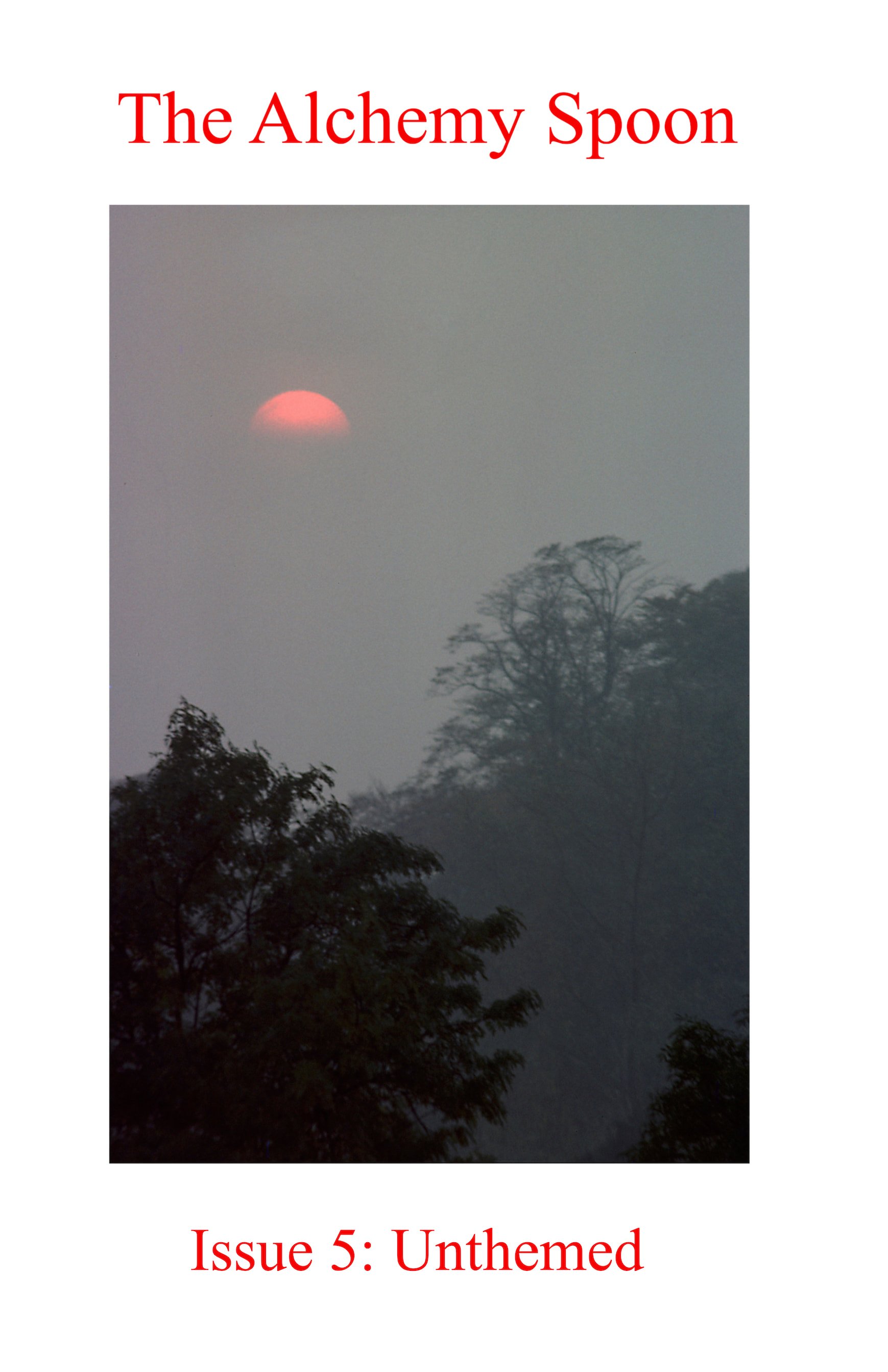‘Essence of winter sleep is upon us’: Lesley Sharpe considers the pull of seasonal change in Robert Frost’s After Apple-Picking.
Robert Frost’s ‘After Apple-Picking’ is the perfect autumn poem, unsentimental and filled with the kind of disorientation which is a mark of both rapture and ripeness. Its underlying enquiry about how things end, and ‘fall’, wears a deceptively simple coat, yoking together a rural economy and a kind of romantic extravagance. It is a world of ladders and apples, barrels and the already-absent woodchuck, whose witness, ‘were he not gone’, might have provided the hoped-for resolution: ‘whether it’s like his/ Long sleep’, because sleep is woven into this poem, like the apple harvest, as another kind of consummation, with all its attendant metaphorical realities.
An early poem, first published in Frost’s second collection, North of Boston in 1914, ‘After Apple-Picking’ has a modern spaciousness, a simultaneous looseness and precision of form. Metre and rhyme move easily back and forth to almost fulfil the expectation set up by the poem’s lyrical narrations, the territory of fruit and fall, but the disruptions of consciousness find themselves mirrored in the irregular line lengths and shifting rhyme patterns – sometimes loosely linked and sometimes echoing to reach across the entire length of the poem. Images expand from the singular integrity of ‘ladder’ and ‘trough’ in their orchard landscape, and the focussed clarity of ‘every fleck of russet showing clear’, to anatomical apples which loom into view, ‘stem end and blossom end’. Precise and random at the same time, appearing, disappearing, magnifying to ‘load on load’, and ‘ten thousand, thousand’, one apple is multiplied indefinitely in a kind onomatopoeic trance.
Frost’s poetic mastery is evident in the way these intoxications of smell and sight compel the speaker to ‘touch’, ‘cherish in hand’, ‘lift down’, the language itself leading him into a delicate heightened sensitivity, as well as the heavy half-awake state induced by satiety, ‘for I have had too much’, he says, ‘Of apple-picking: I am overtired/ Of the great harvest I myself desired’. The rhyme here frames a kind of mythological seduction, grandiose, confessional, into a realm of sleep which might also be, in its mirroring of the realm of death, another disarming of the ‘just’ human the poem will move towards. In raising questions later of ‘worth’, those apples ‘bruised and spiked with stubble’, or those destined only for ‘the cider-apple heap’, Frost brings the apple back to its physical, quotidian utility – the simple fruit, divested of the weight of its own mythological history, is no longer shapeshifter, no longer part of the narrator’s own moral destiny, but destined simply to rot.
It is this earthbound direction which shapes and unsettles the poem, Frost capturing, as he intended, a sense of the vernacular speaker, unassuming, and rural scene: the apple orchard, hum drum task and tools, the ‘long, two-pointed’ ladder – what other kind of ladder could there be? – and even a colloquial kind of ‘heaven’. This attention to detail, the remarking upon a robust physicality, offsets the magic of ‘the world of hoary grass’, its echo of the frozen ‘pane of glass/ I skimmed this morning from the drinking trough’. This ‘world’, the word itself setting the scene apart as if untouchable, is made pristine, its familiar shapes transformed by a frost which powerfully signals the change of season but cannot dull the heady scent of apples. Intoxicating to the point of bewilderment, bringing ‘strangeness’, and ‘dreaming’, the apples become the new markers of a world whose boundaries are loosening, and pulling away.
This movement continues in the internal echoes of words like ‘held’, and ‘melted’, which act as a kind of undertow for other more obvious patterns of sound, the rhymes of ‘well’, ‘fell’ and ‘tell’, for example, but these themselves are an echo of an early couplet whose endings ‘still’ and ‘fill’ will be picked up again later in the line endings ‘fall’ and ‘all’ near the end of the poem. And for the American reader, ‘fall’ has its own autumnal resonance, as well as containing the enduring symbolism of the apple.
In a poem whose more obvious agenda might be magnification and contraction, this play of words is part of the hidden sophistication of a narrative which, constantly pulling away from barrels and ladders and cellar bins, returns to their world by a kind of poetic and natural gravity. An understated dominance of monosyllabic words, which contribute to the apparently easy and mostly iambic rhythm of the lines, also inadvertently absorbs words with a longer rhythm. Verbs that indicate a transition between states – ‘drowsing’, ‘dreaming’, ‘hearing’, ‘coming on’ – find their own pace within the rhythm, while other words disrupt and slow it, particularly evocative in the reversed rhythm of ‘essence’, which, opening its line, pauses and slows the poem as the business of activity drops into another mood, its sleep brought on by both the virtue of hard physical work and the change of season with its beguiling fruit.
The very nature of sleep is its loosening of the constraint and measure of time, of which autumn, with its rich abundance and inevitable giving way to the essence of winter, is the most poignant of seasons. In Frost’s poem, the realm of sleep, whose attendant echoes appear in the long ‘e’ sounds which fill the poem from its first mention of ‘dreaming’: ‘appeared’, ‘disappear’, ‘clear’, ‘hearing’ and ‘heap’, comes to a climax in the last five lines, where ‘sleep’ itself is repeated four times, even twice in the same line, personal, hypnotic, indeterminate: ‘this sleep of mine, whatever sleep it is’. To sleep, perchance to dream. Or, like the woodchuck, deeply connected to the rhythms of the natural world, to hibernate in his own ‘winter sleep’, the long assonance of ‘dream’ and ‘sleep’ its very essence.
Lesley Sharpe
